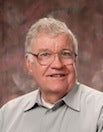UCR Chemistry Major Class of 1964 retired in Aug. 2012 after 31 years’ service at the US Army Natick Soldier Center in Natick, Mass. Dr. Dunne’s long standing role as the Senior Advisor for Nutritional Biochemistry & Advanced Processing in the Department of Defense Combat Feeding Directorate (CFD) brought wide recognition to himself and the CFD, both nationally and internationally, as the preeminent expert in the field of nutritional biochemistry and cutting edge novel processing initiatives. Dr. Dunne received the Commander’s Award for Civilian Service at the retirement ceremony. Dr. Dunne went to graduate school at Brandeis University in Waltham, MA; he has a Ph.D. in Biochemistry for thesis research on the organometallic chemistry of Vitamin B12. Before coming to the U.S. Army Research Center in Natick, MA in 1979, Dr. Dunne was on the faculty of the Chemistry Departments at the University of Detroit and California State University at Long Beach, and was a postdoctoral associate in biochemistry at Michigan State University.
Dr. Dunne led research efforts in food biochemistry and nutritional biochemistry that supported the development of improved rations for the military. He took a lead role in Dual Use Science and Technology collaborative projects involving academia and industry in advanced food processing technologies – pulsed electric field, high pressure and microwave processing. Dr. Dunne was a founding member of the new Nonthermal Processing Division of the Institute of Food Technology (IFT); he was elected the first Chair of that Division in 1999 and co-edited and wrote a chapter for the book, Nonthermal Processing Technologies for Food, published by Wiley-Blackwell in 2011. He was the IFT Solberg Award winner in 2005 for fostering collaborations among academia, industry and government researchers. He was named an IFT Fellow in 2009 and was one of the team of five who were given the IFT 2010 Research and Development Award for the microwave sterilization process. Dr. Dunne was awarded the Institute of Food Safety and Health Food Safety Award in 2011. Dr. Dunne maintains an active interest in science education and volunteers in this area now; he was an elected member of the Framingham, MA School Committee for twelve years. He has three adult daughters leading busy professional lives; his wife Maureen is also retired after serving 32 years as a Professor of Economics at Framingham State University.
Patrick Dunne has some personal memories of a much smaller UCR of the 1960s to share: I came in 1962 as a transfer student from Caltech and recall taking Physical Chemistry from David Kerns, Instrumental Analysis from Dr. Ted Kuwana, P.Chem. Lab from Jerry Bell and Advanced Inorganic from Fred Hawthorne. We appreciated the weekly senior chemistry seminar followed by beers at Shakey’s Pizza. I was introduced to biological sciences in my senior year via an accelerated biology course taught by Dean Parker and a metabolism course with Carlton Bovell and then decided to apply to graduate programs in biochemistry. Many of my classmates also went on to graduate study at variety of leading research universities. UCR was able to attract some of the major music figures of the 60’s to perform in the gym or auditorium. I remember concerts by Bob Dylan, Odetta, Peter Paul and Mary and the Jazz Crusaders. UCR did have a football team in those days but I played on the basketball team for my two years at UCR, where I used skills from basketball developed at Trona High School up in the Mojave Desert along with some of the hardnosed attitude from playing high school football. Those of us at UCR in the early 60s may share my memories of the day in the fall of 1962 when the B-47 bombers at March Air Force Base over the hill all took off and flew right over the campus at the height of the Cuban missile crisis. Most of us can also recall where we were when we heard about the assassination of President John F. Kennedy on Nov. 22, 1963; I was in a comparative literature course when the distressed professor came in and dismissed the class saying the President has been shot.
The best thing about UCR of the 60s was the high-quality education at a very low price to make it affordable for self-supporting students. There was no tuition for California residents, and I think our fees were something of the order of only $75 a semester with very affordable off campus housing in Riverside. I do hope the State of California will renew investment in public higher education as a key to a better future for all.
